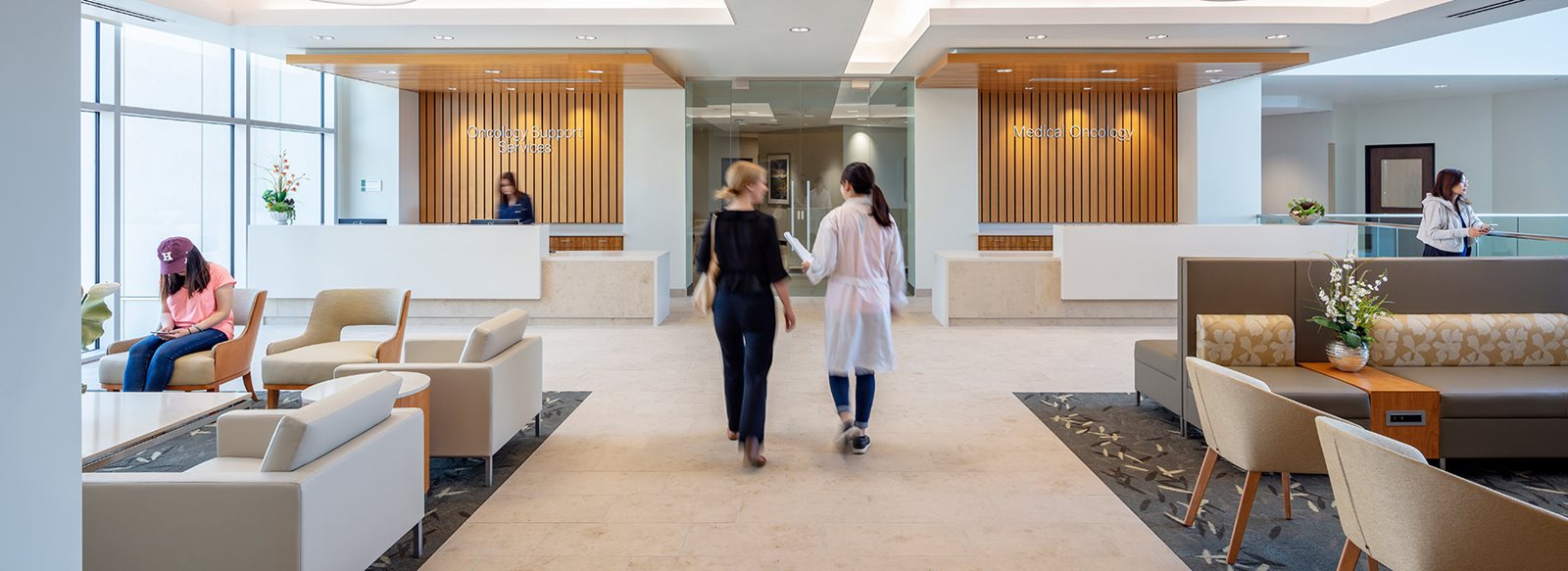
While there are some things you can do to reduce your chances of getting cancer — like maintaining a healthy weight, exercising regularly, eating well, limiting alcohol and staying away from tobacco — early detection and annual screenings are also critical.
It’s important to know that if a doctor suggests a screening test, it doesn’t necessarily mean a person has cancer. Screenings especially benefit those who have no cancer symptoms, but whose genetics and/or lifestyle put them at higher risk. Early detection is important because by the time symptoms appear, cancer may have already spread. When abnormal tissue or cancer is found early, it may be easier to treat. If a screening test result is abnormal, then more tests are needed to find out if cancer is present.
As part of the Community Medical Centers’ network, our cancer program overall cancer program is connected to two of the Valley’s premiere screening programs.
Recognized and accredited by the National Radiology Data Registry — the only program of its kind in the area — we partner with UCSF Fresno to screen for and detect lung cancer as early as possible.
The recommended lung cancer screening uses a type of CT scan called low-dose computed tomography (AKA a low-dose CT scan, or LDCT.) In this test, a more sophisticated X-ray machine scans the chest using low doses of radiation. Lung screening using a LDCT scan is recommended only for people who are at high risk.
Because of our national accreditation, we're able to deliver a comprehensive lung cancer screening program that includes annual screenings, patient education resources as well as enrollment in smoking-cessation programs.
To be eligible for our program, you must meet this criteria:
-
Adults age 55 to 77 years
-
Who have a 30-year history of smoking a pack a day
-
Currently smoke or have quit within the past 15 years
Once enrolled, all patients are very carefully followed by the lung cancer screening team throughout their screening period.
For more information or to schedule an appointment, please speak with your primary care provider or contact our Lung Cancer Screening Program at (559) 224-LUNG (5864), option 2 or by email at CRMCLungScreening@CommunityMedical.org.
Researchers have identified several genes that greatly increase a person's risk of developing breast and ovarian cancer. These breast-ovarian predisposition genes are known as BRCA genes (BRCA1) and (BRCA2).
Abnormalities or mutations in these genes result in a high risk of breast and ovarian cancer. Identifying who has this gene will provide valuable information on how to monitor and prevent cancer from developing.
For more information about the Risk Assessment Screening Program at the Radin Breast Care Center, call (559) 324-3774.
With digital mammograms, the breast image is captured using a special electronic X-ray detector, which converts the image into a digital picture for review on a computer monitor. The digital mammogram is then stored on a computer.
So, if your mammogram or ultrasound finds breast cancer, at the Radin Center you have quick and easy access to our team of specialists. We also accept referrals from other diagnostic centers.
Learn more about the Marjorie E. Radin Breast Care Center.
Abnormalities or mutations in these genes result in a high risk of breast and ovarian cancer. Identifying who has this gene will provide valuable information on how to monitor and prevent cancer from developing.
Risk Assessment Screening Program
The Risk Assessment Screening Program at the Marjorie E. Radin Breast Care Center helps women evaluate their risk for breast cancer. Our nurse coordinators and genetic counselor can provide you and your family with:- A breast cancer risk assessment
- Genetic counseling and testing (as indicated)
- A personalized screening and prevention plan
- Referrals to breast care specialists in collaboration with your primary care provider
For more information about the Risk Assessment Screening Program at the Radin Breast Care Center, call (559) 324-3774.
Mammography
The Radin Breast Care Center is a designated a Center of Excellence by two leading organizations — the National Quality Measures for Breast Centers™ (NQMBC) and American College of Radiology (ACR) — because of its expertise in diagnosing breast cancer.Digital Mammography
Digital mammography allows doctors to see subtle differences in breast tissue that traditional film mammograms do not. In standard mammograms, images are recorded on film using an X-ray cassette. The film is then viewed by the radiologist using a "light box" and then stored in a jacket in the facility's archives.With digital mammograms, the breast image is captured using a special electronic X-ray detector, which converts the image into a digital picture for review on a computer monitor. The digital mammogram is then stored on a computer.
So, if your mammogram or ultrasound finds breast cancer, at the Radin Center you have quick and easy access to our team of specialists. We also accept referrals from other diagnostic centers.
Learn more about the Marjorie E. Radin Breast Care Center.
We use cookies and other tools to optimize and enhance your experience on our website. View our Privacy Policy.

